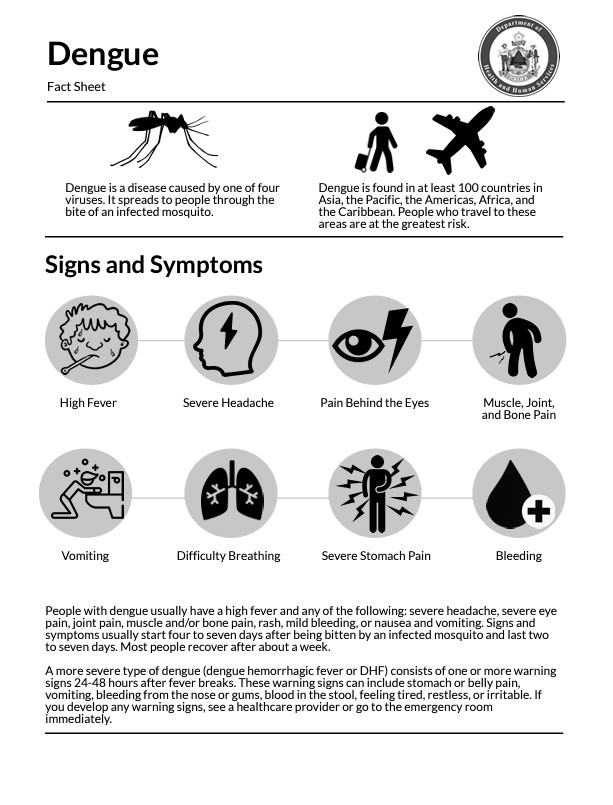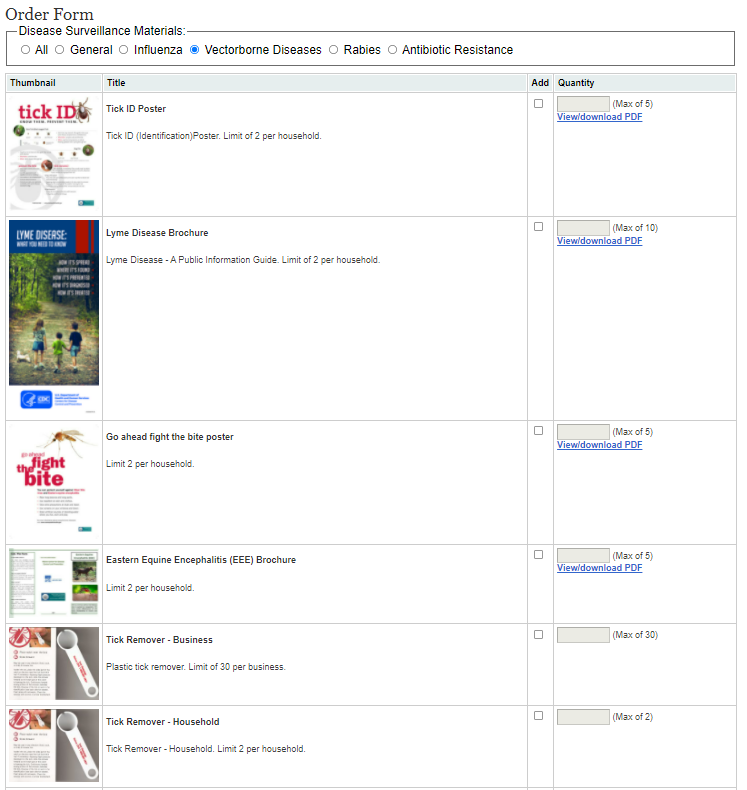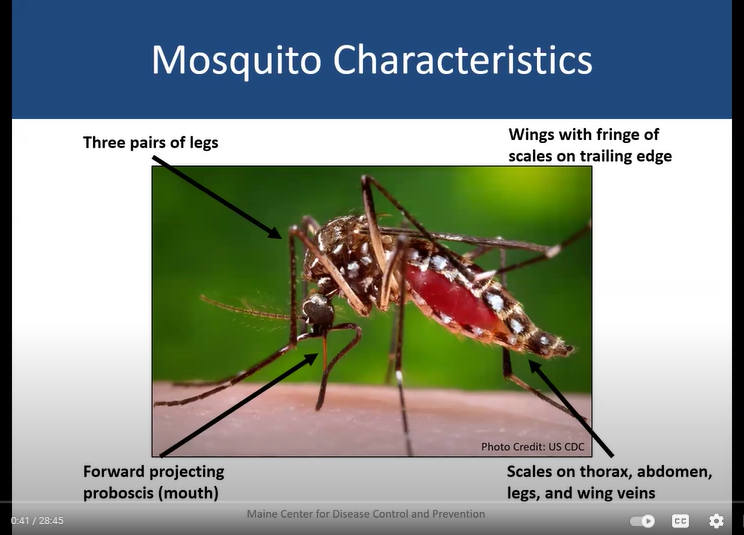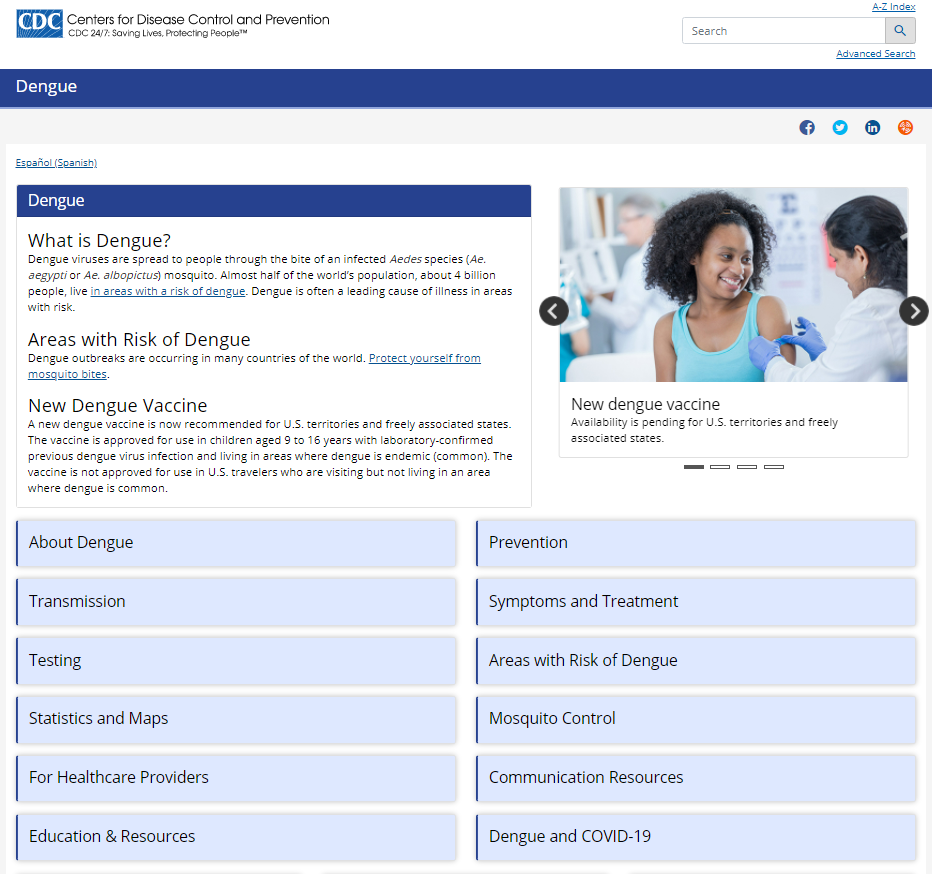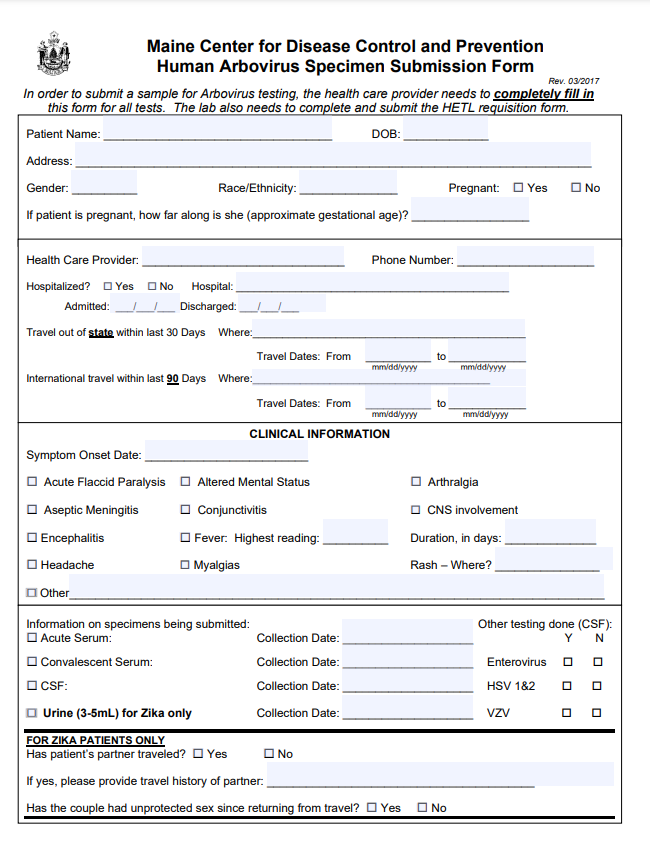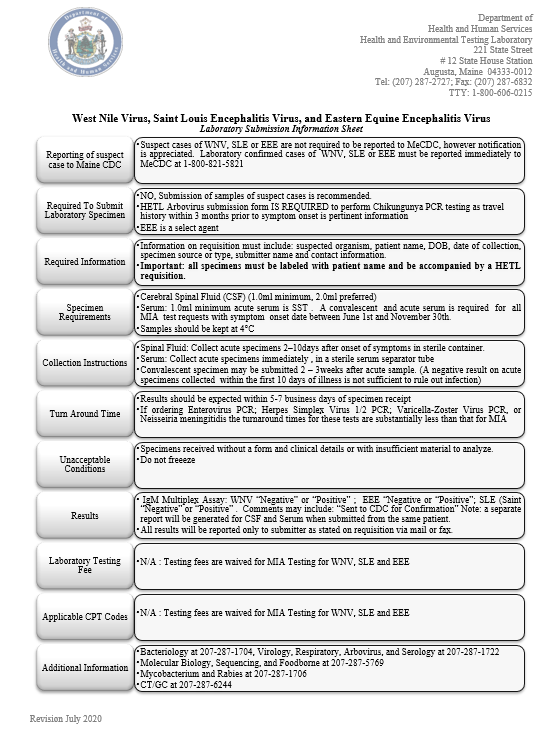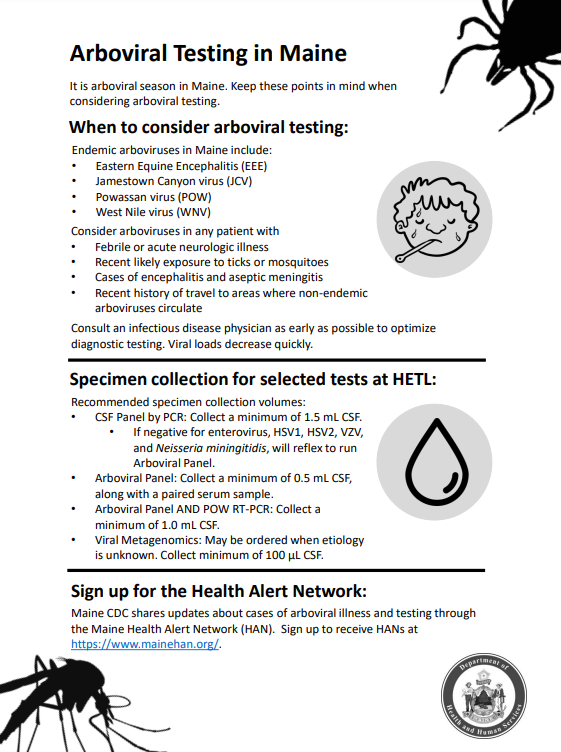DHHS → MeCDC → Disease Surveillance → Epidemiology → Vector-borne Diseases → Dengue Information
Dengue 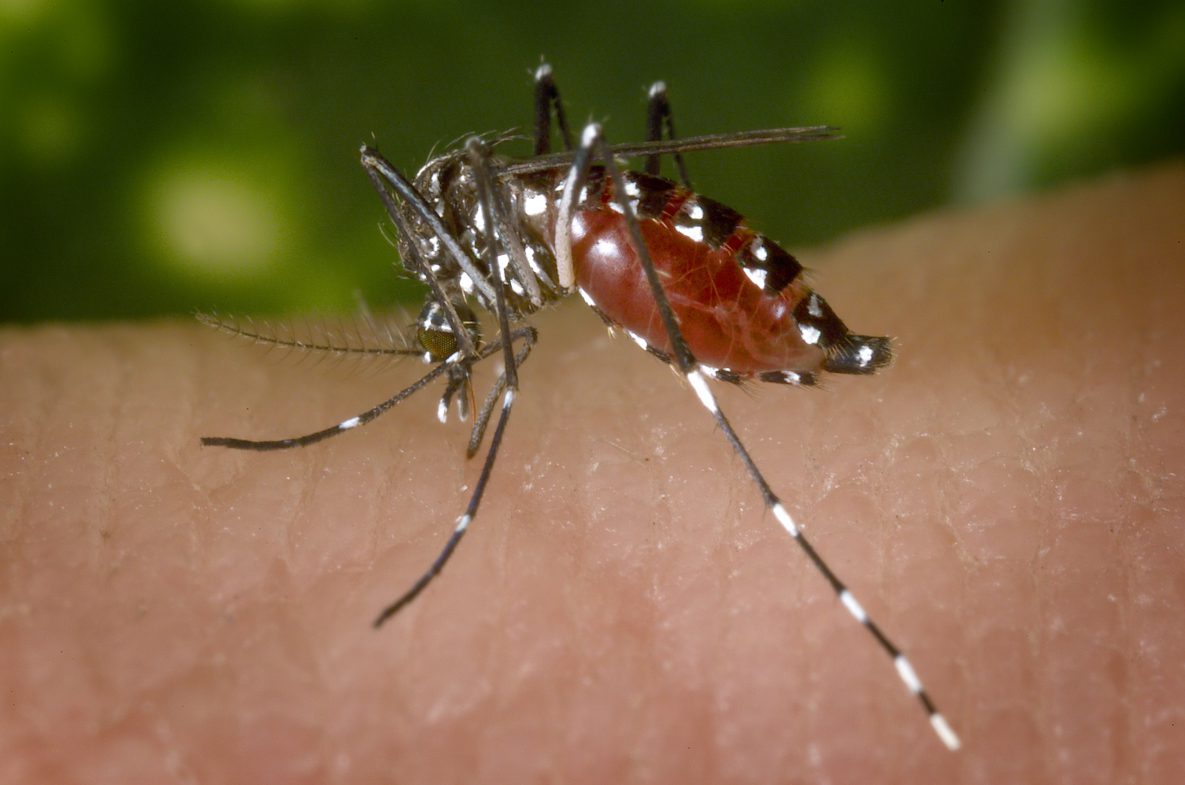
On this page:
- About Dengue Virus
- Symptoms
- Prevention
- Resources for Educators
- Reports and Publications
- Dengue Resources
- Resources for Healthcare Providers
About Dengue Virus
Dengue is a disease caused by four related viruses transmitted by mosquitoes. It can cause disease in humans. In some cases, dengue can also pass from an infected mother to child during pregnancy or through an infected blood transfusion, organ transplant, or needle stick injury.
Dengue virus can be found especially in tropical and subtropical places around the world, including countries in the Americas, Africa, the Middle East, Asia, and the Pacific Islands. Dengue is common in the US territories of Puerto Rico, the US Virgin Islands, and American Samoa.
Nearly all dengue cases reported in the 48 contiguous US states were in travelers who were infected in other places. The mosquitoes that transmit dengue are found in many areas of the United States, so small and limited outbreaks of dengue have occurred in California, Florida, Hawaii, and Texas. The mosquitoes that can carry dengue are not currently found in Maine.
Symptoms
About 1 in every 4 people who get infected with dengue will get sick. While symptoms can be mild or severe, most people develop mild symptoms.
The most common symptoms of dengue include:

Fever

Nausea and vomiting

Rash

Aches and pains
Symptoms usually last 2-7 days and people typically recover after 1 week.
About 1 in 20 people who get sick will develop severe symptoms of Dengue. These people can develop shock (dengue shock syndrome, DSS) or internal bleeding (dengue hemorrhagic fever, DHF). Severe dengue is a medical emergency and some people die. Warning signs of severe dengue include:

Belly pain or tenderness

Vomiting (at least 3 times in 24 hours)

Bleeding from nose or gums

Vomiting blood or blood in the stool

Feeling extremely tired or restless
If you have any of these warning signs, see a healthccare provider or go to the emergency room immediately. Warning signs usually begin 24-48 hours after fever has gone away.
Prevention
A dengue vaccine is available for use in people living where dengue is common. Talk to your healthcare provider to discuss if the dengue vaccine is right for you.
You can prevent dengue by taking these steps:
- Before traveling, check out country-specific travel recommendations, health notices, and warnings.
- Take steps to prevent mosquito bites when traveling to areas with dengue.
You can prevent mosquito bites by:
- Sleeping under an insecticide-treated bed net
- Wearing long-sleeved shirts and long pants when outside
- Using and EPA-approved repellent on your skin (DEET, IR 3535, oil of lemon eucalyptus, picaridin) and on your clothing (permethrin)
Learn more about preventing mosquito bites while traveling.
To learn more about mosquito bite protection, visit the Mosquito Frequently Asked Questions page.
Resources for Educators
Maine CDC developed vectorborne school curricula for 3rd-8th grade classrooms. The curriculum is aligned with Maine Learning Results. School nurses, teachers, and other youth leaders are encouraged to use this resource in their classrooms.
